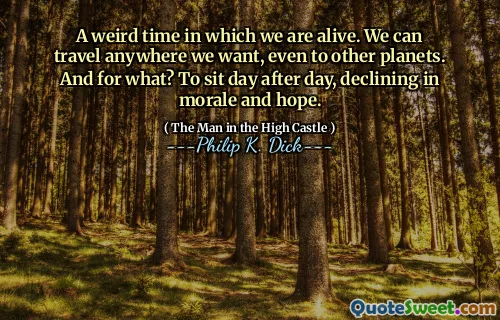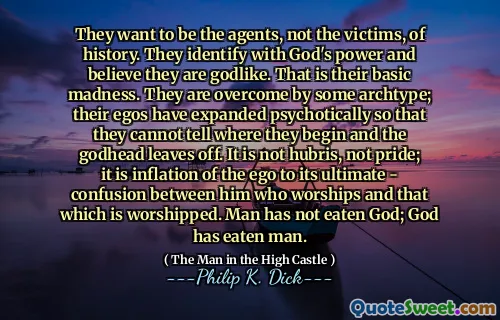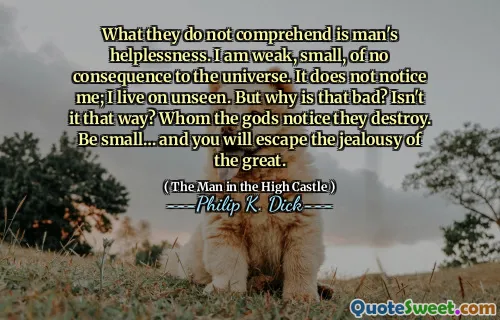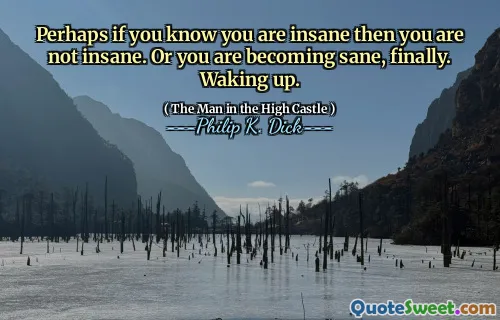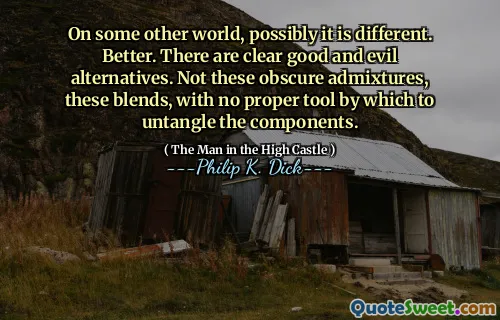
over beside Mr. Baynes, General Tedeki said in a soft voice, You witness the man's despair. He, you see, was no doubt raised as a Buddhist. Even if not formally, the influence was there. A culture in which no life is to be taken; all lives holy. Mr. Baynes nodded. He will recover his equilibrium, General Tedeki continued. In time. Right now he has no standpoint by which he can view and comprehend his act. That book will help him, for it provides an external frame of reference.
In Philip K. Dick's "The Man in the High Castle," a poignant conversation unfolds between Mr. Baynes and General Tedeki. General Tedeki notes the deep sorrow of a man influenced by Buddhist teachings, suggesting that his cultural background prevents him from reconciling with the moral implications of his actions. The emphasis on valuing all life highlights the struggle this man faces in coming to terms with his despair.
As the discussion continues, Tedeki expresses confidence that the man will eventually regain his balance. He points out that the book in question will serve as a crucial tool for introspection, providing an external perspective that will aid in understanding his feelings and actions. This exchange underscores the impact of cultural values on personal crises and the importance of literature in navigating complex emotional landscapes.
